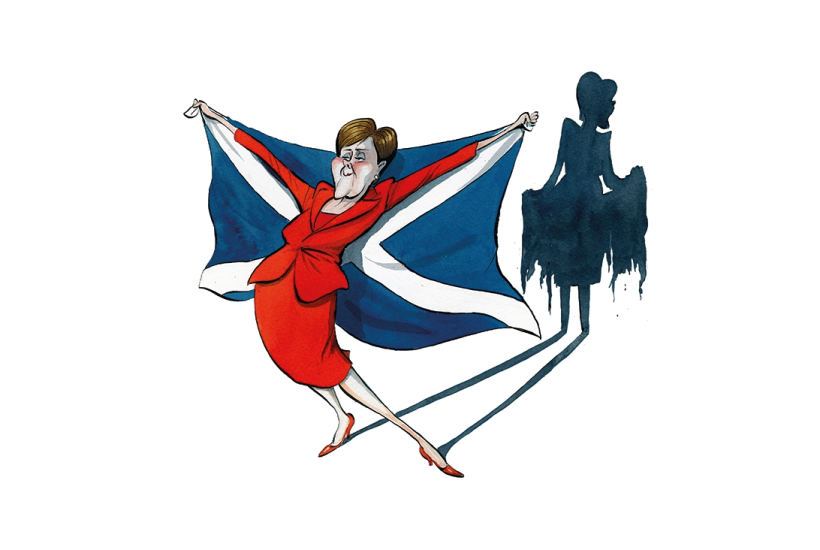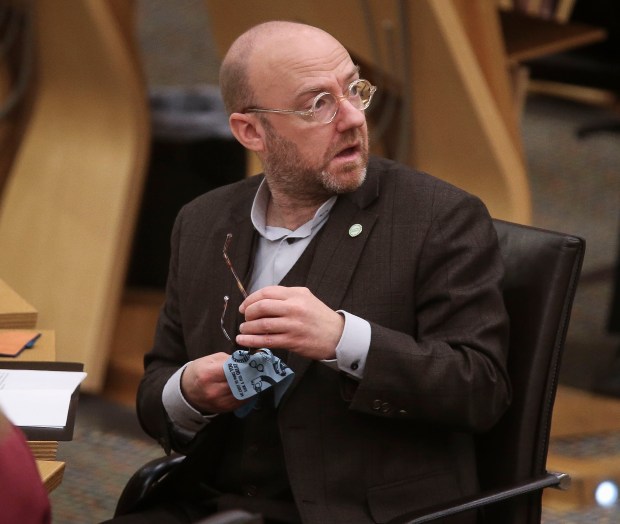It is now two years since Nicola Sturgeon accepted the need for a parliamentary inquiry into how, and why, her government’s investigation into Alex Salmond was so thoroughly tainted by apparent bias it was unlawful.
Ever since then, she has repeatedly promised that both she and her government will fully co-operate with the Holyrood committee — set up to investigate the Scottish government’s response to claims of sexual misconduct against her predecessor. Many hollow promises have been made in the still-short history of the Scottish parliament but few have been emptier than this.
It is necessary to insist upon what the committee is not investigating: it takes no view on the complaints made against Alex Salmond. These have been tested in court already and Salmond, whatever one may think of him, was acquitted on all charges.
The committee’s remit is solely concerned with the Scottish government’s handling of the initial complaints made against Salmond by two women and the processes it then used to investigate these. That government investigation began in early 2018 and concluded in August that year.
This being so, the first minister’s conduct is unavoidably part of the committee’s remit. She has always insisted that she knew nothing of either the complaints made against Salmond or her government’s investigation until he informed her of the investigation on 2 April 2018. This is evidence contradicted by sworn testimony given in court during Salmond’s trial.
Geoff Aberdein, formerly Salmond’s chief of staff, told the court that he had discussed these issues with Sturgeon on 29 March 2018. This is a meeting the first minister says she ‘forgot’. Many observers, cognisant of Sturgeon’s reputation as a detail-oriented politician, consider this lapse of memory unusual. Indeed, one might expect Sturgeon to remember the moment she discovered her predecessor, her political mentor, a man she was closer to than almost anyone else, whose deputy she had been for a decade, was suspected of serious sexual misconduct.
This impression, frankly, is bolstered by Salmond’s submission to the Hamilton inquiry — separately established to probe Sturgeon’s compliance with the ministerial code — in which he alleges that Aberdein’s meeting with Sturgeon was instigated by the first minister’s own office ‘for the purpose of discussing the complaints and thereafter arranging a direct meeting between myself and the first minister. There was never the slightest doubt what the meeting was about’. According to Salmond, that meeting was itself the product of previous discussions between Sturgeon’s office and Salmond’s intermediaries. Sturgeon says she was not involved in these talks and nor was she even aware of them.
But what the first minister knew, and when she knew it, is a matter of legitimate public interest. The botched civil service investigation cost taxpayers the thick end of £1 million but the cost to the first minister’s integrity could be vastly higher than that. The committee, however, seems either unable to, or worse uninterested in, pursuing these matters to their logical and necessary conclusion.
For weeks, even months now, it has been bogged down in legal-wrangling over what documents it may publish, and on what terms it may call its witnesses. If Salmond has not persuasively substantiated suggestions he was the victim of a conspiracy, the Scottish government has equally failed to banish the suspicion it has something unwelcome it wishes to hide.
For how else may its pattern of obfuscation, diversion, delay be explained? Senior civil servants have displayed memory lapses so staggering one wonders how such people could have risen to such senior positions; the government has twice defied the Scottish parliament’s instruction it publish the legal advice upon which it pursued its doomed case in the judicial review launched, and won, by Salmond. Key witnesses have not been called to give evidence to the committee.
And last night the committee voted, for the second time, not to publish Salmond’s written submission to it, once again leaving his oft-postponed appearance before it in doubt. If Salmond does not testify, it seems highly plausible Sturgeon will not be called to either. If so, the committee will have failed. But so, more broadly, will Scottish politics.
There is enough blame to go around for everyone to own a piece of it. If the conduct of some opposition members on the committee has been questionable, not least in the manner in which they have offered a running commentary on the committee’s investigation, it remains the case that the greater burden of responsibility for this fiasco is born by the government and by the committee’s SNP members.
For if opposition MSPs have been — gosh! — ‘playing politics’ it now seems clear that the committee’s SNP members believe party loyalty trumps the public interest. How else may their actions be explained? What other reason is there for consistently refusing to put documents of public interest into the public domain? There is nothing in either Salmond’s submission to the committee, or in his submission to the separate Hamilton inquiry, which could identify either of the women whose initial complaints began this process.
The anonymity of these and other complainers is broadly in the public interest even if, in a more narrow sense, the public interest — or at least public understanding — is hindered by that anonymity. Be that as it may, for some time it has been apparent that concerns about potential ‘jigsaw identification’ (where different publications each publish details about the complainers, details which on their own protect their anonymity but which could be stitched together to identify the complainer) have been used to thwart the committee’s investigation. Important documents, whose publication is very much in the public interest, languish unpublished.
The Salmond inquiry was tasked with discovering what happened during the Scottish government’s investigation of the complaints made against Salmond. It now seems highly likely it will fail to do so. In other jurisdictions that might be considered a disgrace and a scandal. It should be reckoned one in Scotland too. Even Scotland.
For this now risks becoming something greater than a mere fiasco. It is fast reaching the point at which it embarrasses all Scotland’s political parties and the institution of parliament itself. Holyrood’s committee structure is plainly incapable of dealing with issues of this kind and Scotland’s political culture has — equally obviously — failed to produce or promote representatives capable of discerning the distinction between party interest and the public interest.
Sturgeon has already all but intimated that she has no intention of resigning even if she is found to have broken the ministerial code. That would not be entirely unprecedented — and we may in such circumstances expect a flurry of SNP references to Priti Patel — but it would still be most unusual.
If so, that would reinforce the already gathering impression there is something rotten here. For it would offer a picture of an over mighty and unaccountable executive and a first minister who considers everyday standards of propriety something for other, lesser, people. I have no reason to suspect a conspiracy against Salmond but there is every reason to suppose that Nicola Sturgeon has repeatedly failed to tell even a part of the truth. Once upon a time that would have been considered something important but in this new world, in which the interests of party and country are routinely conflated, matters such as the truth and the public interest in discovering that truth should perhaps be considered optional extras. Desirable as an abstract concept but not to be taken too seriously if pursuing them risks embarrassment. There is something rotten about that too.
Got something to add? Join the discussion and comment below.
Get 10 issues for just $10
Subscribe to The Spectator Australia today for the next 10 magazine issues, plus full online access, for just $10.





















Comments
Don't miss out
Join the conversation with other Spectator Australia readers. Subscribe to leave a comment.
SUBSCRIBEAlready a subscriber? Log in